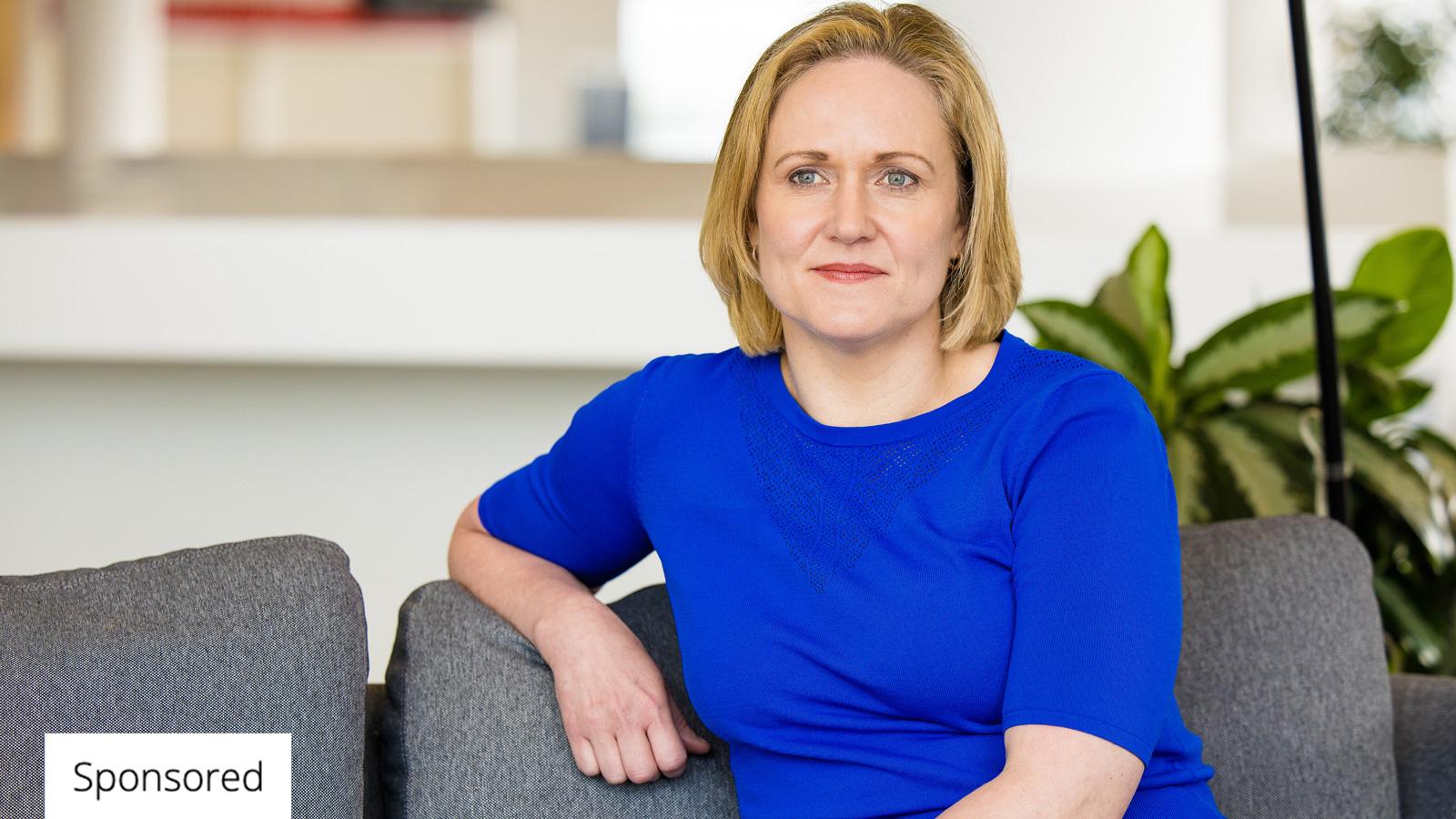Balancing the health ecosystem: Putting the patient first

In March 2023, Roz Bekker was appointed managing director of Janssen UK & Ireland. Only six short months later, pharmaphorum met with Bekker to discuss her long-standing journey with Janssen – soon to be rebranded to Johnson & Johnson Innovative Medicine – as well as her clinical practice years in South Africa and what can be achieved when the pharmaceutical industry collaborates not just with healthcare, but with patients.
The realities of healthcare
Previously working as a community service doctor in the more rural parts of South Africa, Bekker’s decision to join industry came from a desire to impact patient care at a different scale, and in a different way. The healthcare ecosystem in Africa’s southernmost country is, to say the least, challenging, dealing with fewer resources and fewer physicians in the doctor-to-patient ratio.
“Some people are living very remote from healthcare and have to make the choice of, ‘If I go and see the doctor today, then it means I cannot earn and will not eat today’,” Bekker explained.
Despite the challenges of working in such an environment, she found it rewarding, being able to directly witness the impact that a healthcare professional has on their patients.
“I would say what stands out for me […] is understanding that, in healthcare, you really have to consider a person in their totality,” Bekker said. “It's not enough to have diagnosed somebody or have prescribed a medicine, because there are so many things that can get in the way of that person being able to actually access that care. A community, and the ecosystem around a patient, becomes critical to making sure that, in the end, they get the care they need.”
A whole ecosystem of patient care
One example of the importance of this ‘community’ was observed in something called DOT (directly observed therapy), where a patient would be partnered with a person in the community to observe them taking their medicine every day, ensuring adherence to medication and clinical improvement.
Other times, it was simply about building up the picture by taking the time to ask patients and their representatives the right questions.
“We would have conversations with mothers in paediatrics, where a child would be very malnourished, and you're trying to treat a child with maybe a chronic condition, when their most basic need is getting the right diet,” Bekker explained. “It reinforces why your advice and support needs to come from a place of understanding, and really listening to a patient or their caregiver’s needs”
“Having that holistic care approach,” she continued, “has really cemented my outlook in my current role: that you have to take a step back and look at the ecosystem and understand, end to end, what might get in the way of a person being able to access care, and what we can do within that ecosystem to help take away those pinch points.”
Shifting from clinical medicine to industry
Bekker started at Janssen in 2005. Her core love being helping patients and improving their lives, it is this essential ethos that she shares with Janssen that has been so influential in her decision to remain with the company these past 18 years.
“The first job that I did within industry was as a Medical Science Liaison, so a field-based medical role,” Bekker explained. “It was a very new role in industry at the time. It was actually the first MSL role in Janssen in South Africa. That was really exciting, being able to forge my way ahead in an entirely new area.”
Indeed, Bekker has since then felt privileged to have been able to build an extensive and wide-ranging career within Janssen.
“I've been afforded many opportunities to grow and develop and stretch,” she said. “[However,] the thing that attracted me in the first instance to working for Johnson & Johnson was that core, company Credo […] – the attention to patients and the communities. That really spoke to me from a clinician’s perspective. Seeing that really, truly embedded within the DNA of the organisation, and everything that we strive to do, just sat so firmly and comfortably with me, that it's really kept me [there].”
Job satisfaction and ABPI board election
Bekker has held a number of positions within Janssen during her time with the company, in various regional and local medical and commercial roles. She has had the opportunity to work across a number of different therapy areas, including neuroscience, infectious disease, haematology and oncology.
But what of her latest appointment as Managing Director UK & Ireland?
“I would say that what's important for me in this role is just making sure that I'm able to give back and ensure that other people have the opportunity to get the same balance and kind of love for their work environment that I have,” Bekker explained. “I'm a big believer in the importance of work environment, as it’s a huge part of people's lives. Every day, our people turn up full of passion and purpose. It truly is an honour to work alongside so many talented, energetic, and committed colleagues.”
Bekker has also been honoured with election as a two-year member of the ABPI board.
“I take the responsibility very seriously,” she said. “As an ABPI board member, we really are working together to ensure that we're representing the views and the needs of the broader industry, rather than our individual organisations. What I would say is, since joining the board, I've been working with an incredible set of industry colleagues, and we've really got an aligned vision for the UK life sciences industry from early research, right through to ensuring that patients have access to the best and newest innovations.”
“We really need to ensure that we understand what the needs and challenges are that are being faced within the ecosystem of healthcare,” Bekker explained. “We do that not by assuming that we know what those challenges are, and that we have the answers, but by listening to experts. We very intentionally have advisory boards or roundtables, be it with patient advocacy groups, healthcare professionals, or other experts, in order to understand what those challenges and barriers are that are impacting access and uptake to medicines.”
Enduring partnerships and innovative, individualised healthcare
One such example of an access barrier that was highlighted by clinicians was the considerable time burden of blood tests. Understanding this, Janssen set up and funded the positive intervention of home blood collection services for patients that had already been identified as suitable for treatment after being diagnosed with psoriasis or psoriatic arthritis within dermatology and rheumatology, helping to accelerate the start of their prescribed treatment.
“We were getting feedback through clinicians that this delay was a real pain point for patients,” she said. “Being able to provide nurses who could offer the blood collection service in the comfort of somebody's home was an area that we could really help with to reduce that time to starting treatment, as well as reduce the pressure on the NHS.”
A similar approach was applied to those patients with chronic diseases that require injections on a regular basis, not just for the purpose of treatment, but for patient empowerment.
“Patients really want to be empowered to be able to have those injections at a time and place where it suits them, as well as be able to self-inject, if that's something that they want to do,” Bekker explained. “[Therefore,] we've supported training for patients, or for their carers if that's what's most important to them, to be able to do self-injection where and when they want. I think that really empowers patients to be able to live with their conditions in the best way that they can.”
“That also means that we want to ensure that we partner with patients,” she continued. “We cannot make decisions for patient without patients. We need to stand alongside patients, and the NHS, and the different regulatory bodies to ensure that the UK ecosystem is working in the best way that it possibly can […] It's certainly going to be an ongoing piece of work that we do; I'm a firm believer that the job is never done. There's always going to be an opportunity to improve, optimise, and advocate for change.”
A future vision of personalised medicine, and the right system
With such a job that is never really done, a plan must be on the table for the future. What, then, of the next three years in the company’s improvement, optimisation, and advocacy for change?
“We are continuing to strive to really bring innovations that address the highest unmet need,” she continued. “We continue to focus on the areas that are not easy, but we're science-driven in ensuring that we can improve patient care. Over the next few years, we'll get closer and closer to more and more personalised medicines for patients. That really excites the clinician in me because, as individual patients, even if we have the same condition, we experience that condition and the treatments in very different ways.”
“If I think about the next three years, I think we, as an industry, are at a watershed moment,” Bekker stated. “[We are] working very closely with the ABPI, of course, the NHS, and other stakeholders to ensure that we have a life sciences sector and healthcare ecosystem that's going to stand the test of time.”
About the interviewee

Roz Bekker joined Janssen in 2005 and has held various positions across medical and commercial, including as Medical Director and Business Unit Director for Janssen UK and Vice President Commercial Strategy Infectious Diseases and Vaccines for Janssen EMEA. She is also a Healthcare Business Women’s Advisory European Board member and part of the Association of the British Pharmaceutical Industry (ABPI) Board. Prior to joining Janssen, Bekker worked as a clinician in South Africa in general medicine and surgery.
About the Janssen Pharmaceutical Companies of Johnson & Johnson

About the Janssen Pharmaceutical Companies of Johnson & Johnson: At Janssen, we’re creating a future where disease is a thing of the past. We’re the Pharmaceutical Companies of Johnson & Johnson, working tirelessly to make that future a reality for patients everywhere by fighting sickness with science, improving access with ingenuity, and healing hopelessness with heart. We focus on areas of medicine where we can make the biggest difference: Cardiovascular, Metabolism, & Retina; Immunology; Infectious Diseases & Vaccines; Neuroscience; Oncology; and Pulmonary Hypertension.
CP-416808 | Date of preparation October 2023











